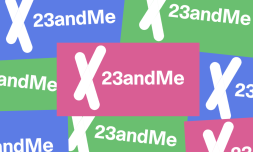Reports show that young people are using search engines differently to their parents, opting to trust TikTok and Instagram recommendations directly sent from friends over Google. SEO experts should take note.
If you’re a millennial or older Gen Zer, you’ve probably spent most of your time on the internet ‘Googling’ anything you may want to know. It’s been the standard practice for well over two decades at this point.
However, as younger Gen Zers come of age and dominate online spaces, researchers have found that their use of the internet is markedly different to their older peers.
Rather than using Google as a default, an increasing number of young people are instead choosing TikTok, Instagram, YouTube, Reddit and Discord to learn new information.
This could include everything from pub recommendations to tutorials on new skillsets.
In fact, a 2024 Forbes study found that Google use in general was down 25% with Gen Z compared to Gen X, and eMarketer reports that nearly half of Gen Z prefer social media over the old-school search engines.
Young people are no longer turning to Google for new information or discovery, and would much rather learn from more trusted places where community and interaction with others is the focus.
Content that is curated and assessed by humans rather than algorithms is appealing to Gen Zers, particular in our new AI-obsessed age where every company under the sun seems determined to shoehorn automation into processes that simply don’t need it.
Google came under fire for its AI tools recently, for example, with users claiming that its generated responses to queries were often inaccurate and unreliable, damaging the search engine’s overall reliability as a result.
Platforms like Reddit, meanwhile, operate via a user-based quality assurance process, where the most useful or highest quality content is sifted to the top of the feed by other readers giving ‘upvotes.’ This additional reliability is appealing to young people, who often see the big tech firms like Google and Facebook as untrustworthy and biased.
For SEO firms and experts, this means that they must evolve their strategy to better accommodate these different avenues of ‘social searching.’ Businesses and brands can no longer rely on Google metrics and rankings alone. They may still be important, but advertising is increasingly shifting onto other platforms like TikTok and Instagram.
Duolingo is a good example of a brand embracing different ways to reach customers beyond just Google, creating narratives and memes around its mascot in order to drive sharibility among viewers. Brand recognition is no longer tied to search rankings and marketers must acknowledge that Gen Z are navigating the internet in an entirely new way.
Gen Z are not using Google to search for everything.
Instead, they’re looking for visual, trend-driven content that is immediate and up-to-date. Up to 40% of young people opt for TikTok or Instagram over Google Search or Maps, learning about new places or restaurants via creator or influencer videos rather than their own research.
According to Search Engine Land, opinions on where Google is headed and its future are mixed. Some reports indicate that Google grew by 20% in 2024, yet at the same time Ofcom suggests that 1.8 million UK adults stopped using it for searches last year.



















